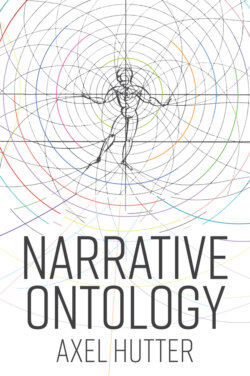Читать книгу Narrative Ontology - Axel Hutter - Страница 33
Notes
Оглавление1 1. In the Joseph novel, some biblical names are written differently from the norm (in German: Issak/Jizchak, Jakob/Jaakob), whereby the spelling may even vary within the novel. (By contrast, the customary spellings are used for the thought pursued here in order to make clear that the reflections relate not only to the narrative of the Joseph novel but also to other narratives – for instance, from the original text.) This deliberate inhomogeneity of the names takes into account the central issue that the ‘I’ is ambiguous and human identity unstable.
2 2. It is for this reason remarkable that, in 1939 – that is, as work on the Joseph novel was already well advanced – Thomas Mann provides in retrospect a precisely matching characterization of The Magic Mountain. The ‘ambition’ of the earlier novel, according to Thomas Mann, consisted in pretending ‘to give perfect consistency to content and form, to the apparent and the essential; its aim is always and consistently to be that of which it speaks’ (1999a, 725). This identity of content and form that was already striven for in The Magic Mountain reaches completion, however, in the Joseph novel, in which it acquires its most consistent and radical form. Precisely for this reason, Thomas Mann is ‘compelled to believe the voices that consider that Joseph represents the climax of his life work’ (Letter to Otto W. Zenker, 10 April 1949; Sk 315).
3 3. To be sure, it is obvious that an exact counter-model is also a form of the varying repetition. Whoever does the opposite of what is expected likewise follows the established model – only in an inverted form. The negating, inverting repetition testifies just as much to a ‘father bond’ as does the affirming repetition.
4 4. Thomas Mann gave the speech in Vienna on 8 May 1936, on the occasion of Freud’s eightieth birthday. At this point in time, the first part of the Joseph novel had already been published.
